
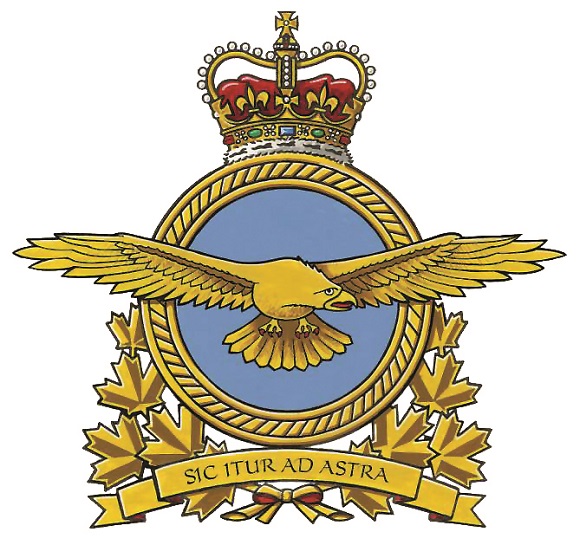
[RCAF]
1 April 1924
The Royal Canadian Air Force is created.
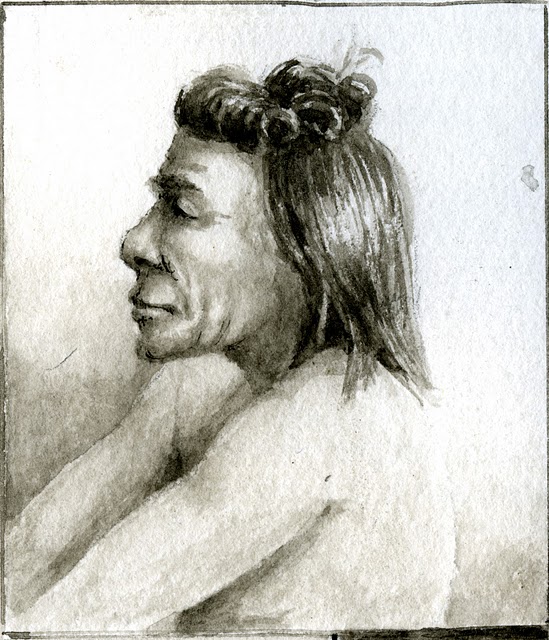
[North-West Rebellion.com]
Cree warriors, led by war chief Wandering Spirit, kill nine settlers at Frog Lake in what was then the District of Saskatchewan.
3 April 1969
The government announces it is withdrawing half of Canada’s NATO contribution in Europe.
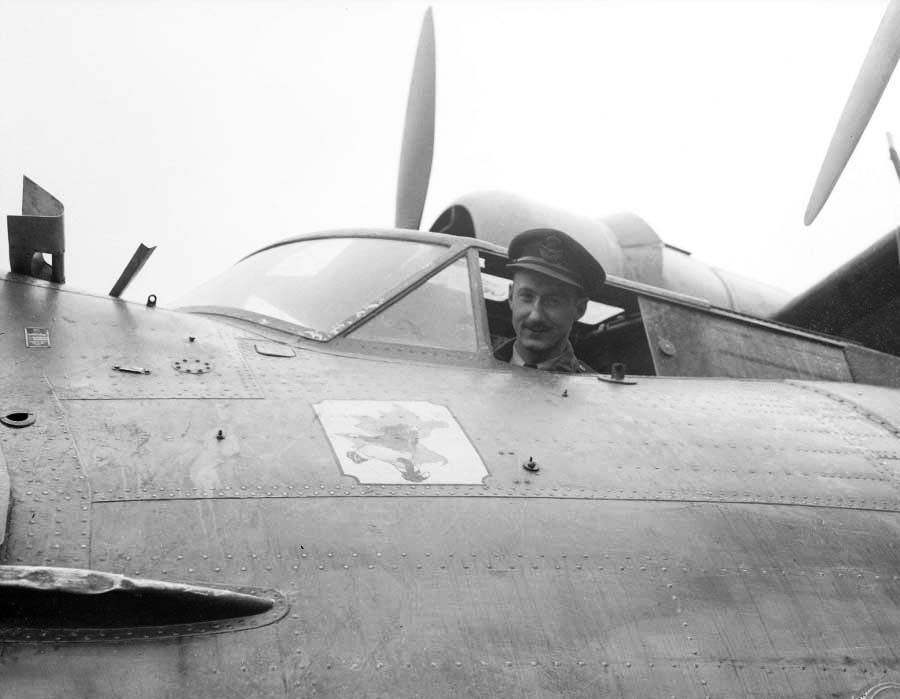
Squadron Leader Leonard Birchall aboard a Consolidated PBY Catalina before being shot down and captured near Ceylon by the Japanese. [DND]
Squadron Leader Leonard Birchall spots a Japanese navy formation heading to attack the Royal Navy’s fleet in Ceylon. Birchall alerts his base before his aircraft is shot down and he is captured.

Portrait of Jean Talon, by Claude Francois (Brother Luke). [Wikimedia]
Jean Talon, New France’s first intendant, passes an ordinance granting bonuses to fathers of large families through marriage. Those with 10 children are granted 300 livres per year, those with 12 are granted 400.
6 April 1917
The United States declares war on Germany, officially entering the First World War.
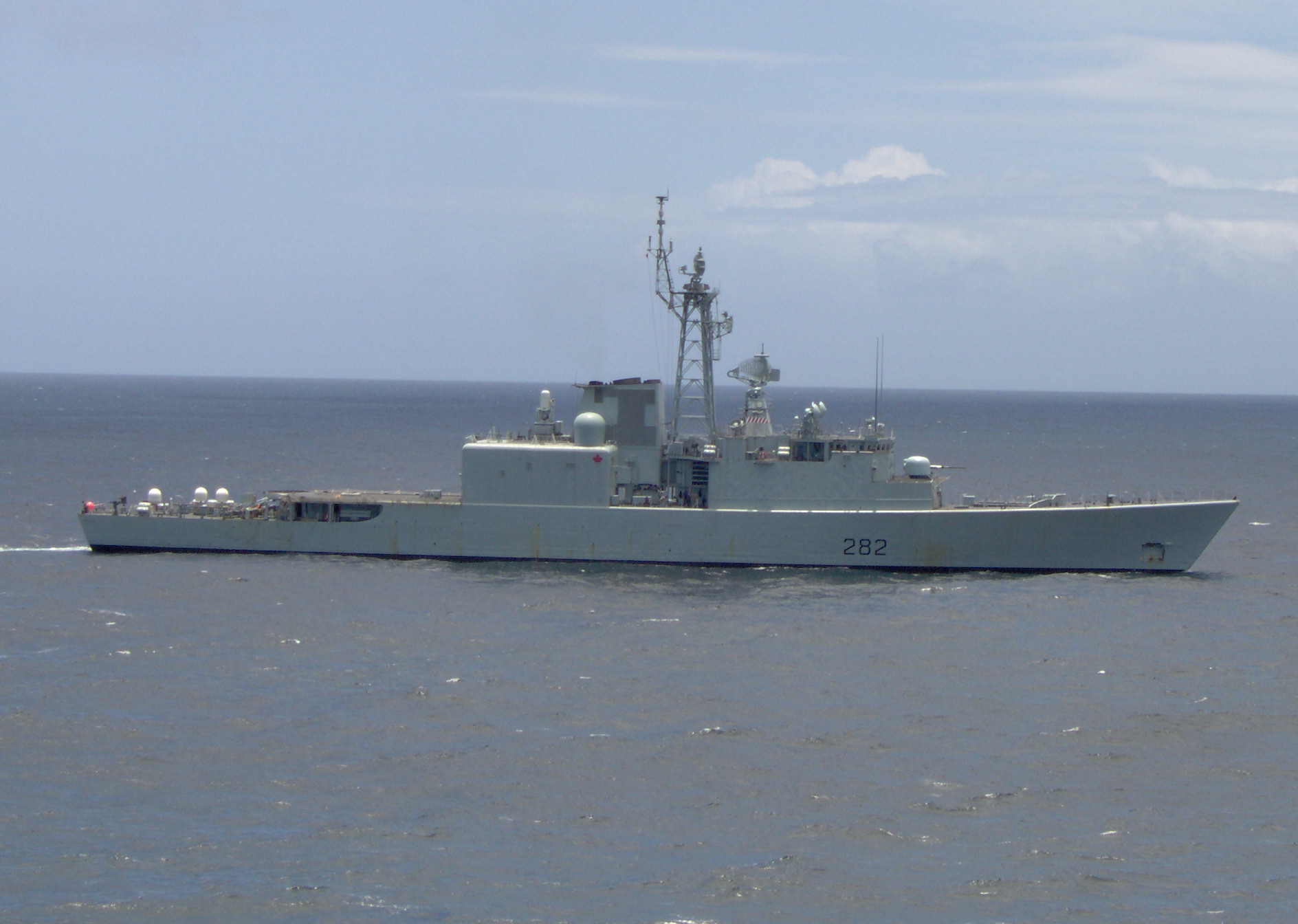
HMCS Athabaskan. [Wikimedia]
HMC ships Athabaskan, Protecteur and Terra Nova arrive home from service in the Gulf War.
8 April 1945
Canadians begin clearing German resistance from towns in Holland.
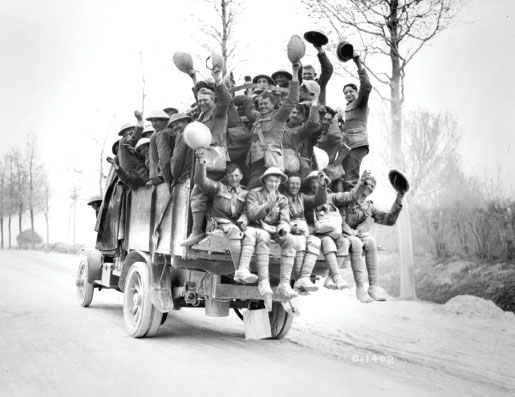
9-12 April 1917
Some 100,000 soldiers engage in the four-day battle for Vimy Ridge, the first time all four Canadian divisions fight together side by side.
10 April 1937
The Foreign Enlistment Act is passed. Designed to prevent Canadians from volunteering in the Spanish Civil War, the act makes it illegal for Canadians to join a foreign state at war with a friendly state.
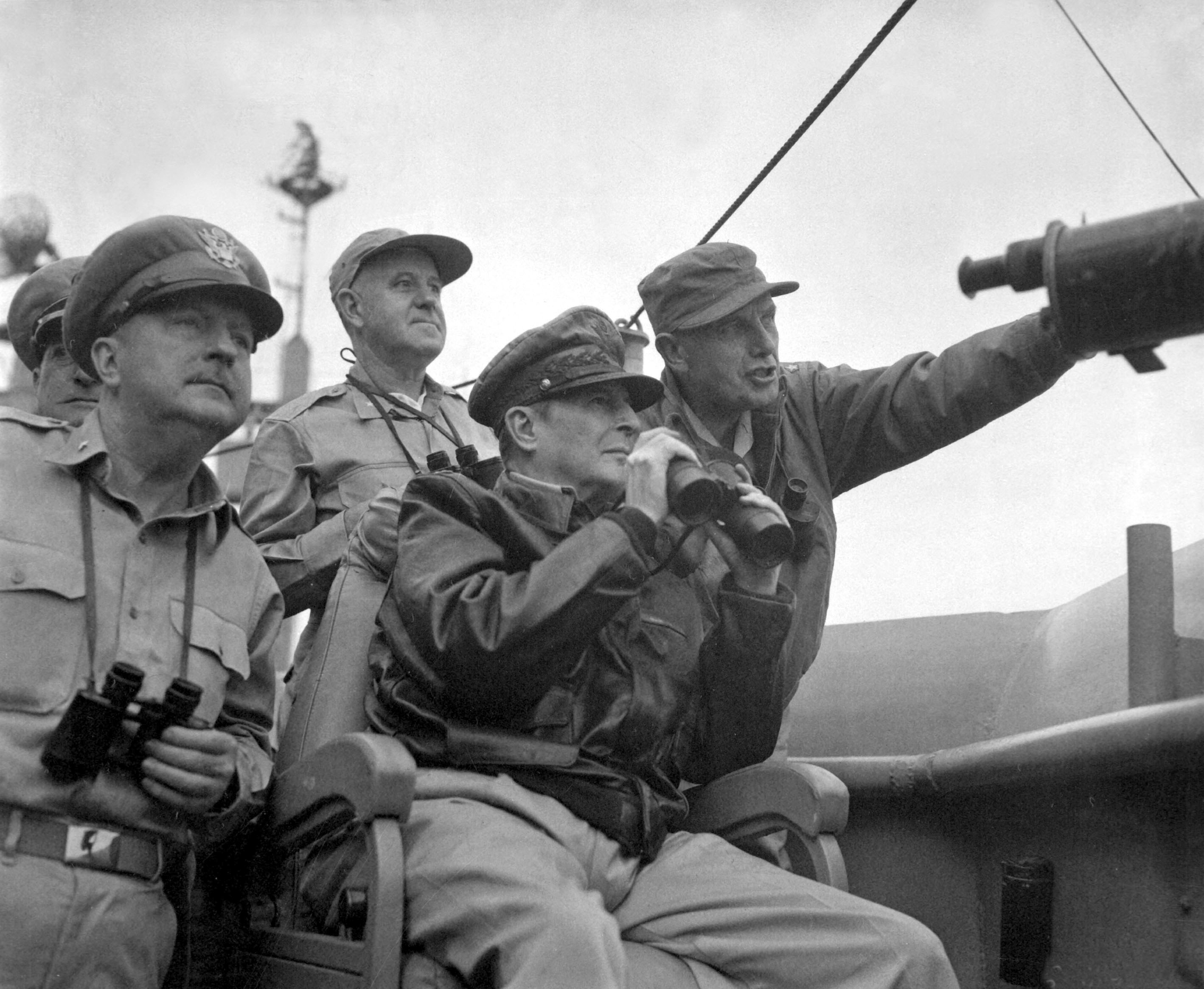
Brig. Gen. Courtney Whitney; Gen. Douglas MacArthur, Commander in Chief of U.N. Forces; and Maj. Gen. Edward M. Almond observe the shelling of Inchon from the U.S.S. Mt. McKinley, September 15, 1950. [U.S. ARMY ARCHIVES/WIKIMEDIA]
General Douglas MacArthur is replaced by General Matthew Ridgway as commander of the United Nations forces in Korea.
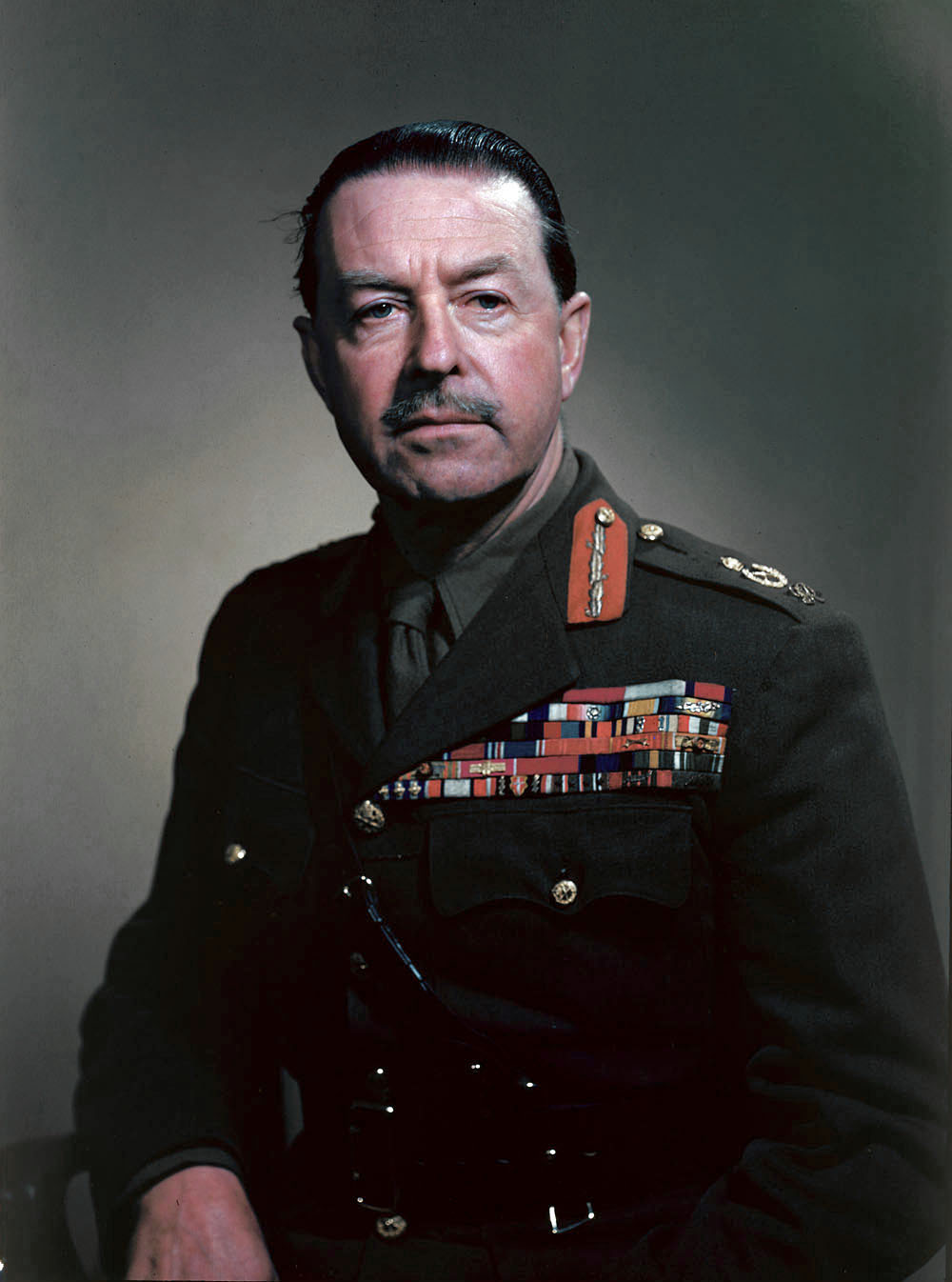
The Right Honourable Harold Alexander [LAC – 4233815]
Sir Harold Alexander is sworn in as Canada’s 17th governor general.
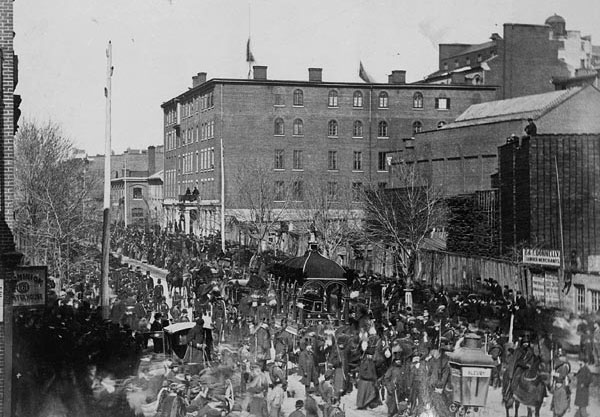
Funeral procession of Hon. Thomas D’Arcy McGee at the corner of Bleury and Craig Streets in Montreal. [George Martin / Wikimedia]
Thousands attend a state funeral for Father of Confederation Thomas D’Arcy McGee in Montreal. Five months later, Fenian sympathizer James Patrick Whelan is convicted of McGee’s murder.
14 April 1912
A remote Marconi wireless station at Cape Race, Nfld., receives a distress call from RMS Titanic, with the simple statement: “Have struck iceberg.” The ship sinks just after midnight.
15 April 1941
402 Fighter Squadron conducts the RCAF’s first offensive operation over enemy territory.
16 April 1945
HMCS Esquimalt is torpedoed and sunk by U-190 off the coast of Halifax.
17 April 1944
U-432 is sunk by a Canso aircraft from 162 Squadron, RCAF southwest of Iceland.
18 April 1942
The United States conducts an air raid over Toyko, Yokohama, Kobe and Nagoya, Japan, in what is known as the Doolittle Raid.
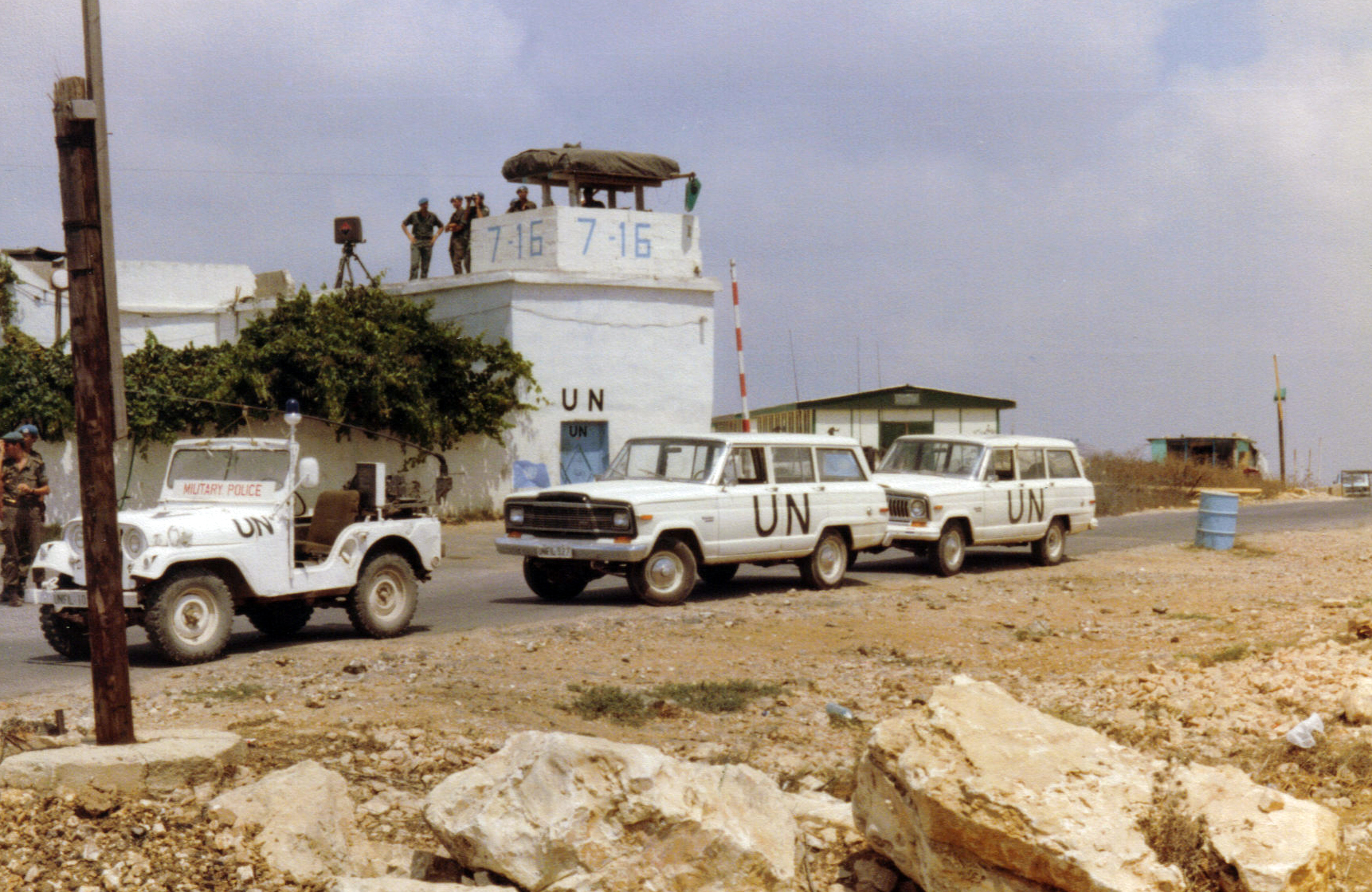
The UN Security Council passed Resolution 425 calling for immediate Israeli withdrawal and creating the UN Interim Force in Lebanon (UNIFIL), charged with attempting to establish peace. [Wikimedia]
Canadian forces arrive in Lebanon as part of the United Nations Interim Force in Lebanon.
20 April 1534
Jacques Cartier sets course on his first voyage to Newfoundland.
21 April 1953
1st Battalion, Royal 22nd Regiment is relieved by 3rd Battalion, Royal 22nd Regiment in Korea.
22 April 1915
The German army opens the valves on 5,700 cylinders of chlorine gas opposite French positions in the Ypres Salient. Surviving French flee, exposing the entire left flank of the Canadian Division.
23 April 1947
HMCS Malahat is recommissioned as Victoria’s Naval Reserve Division.
24 April 1885
A force of more than 200 Métis and Dakota men ambush General Frederick Middleton and his militia at Fish Creek, Sask., but halt the attack when their ammunition runs out. Middleton orders a retreat but declares the battle a victory.
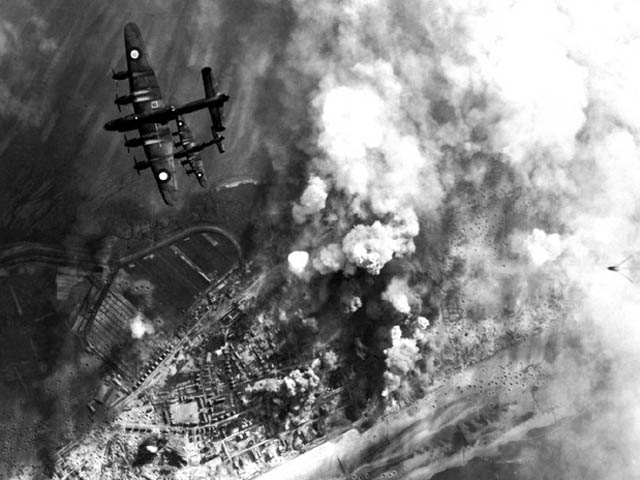
6 Group’s last bombing raid against the coastal batteries in Wangerooge, on the Friesian Islands, on April 25th, 1945. Five Canadian crews were lost following a chain collision. [National Defence Image Library, PL 144281]
No. 6 Group, RCAF bombs coastal defences at Wangerooge, Germany, in the group’s final bombing attack.
26 April 2015
The CAF’s Disaster Assistance Response Team deploys to Nepal after an earthquake.
27 April 1942
Quebec votes “non” to compulsory overseas military service in the national conscription plebiscite.
27-28 April 1918
Leading a party of scouts against a German trench, Lieutenant George McKean storms ahead alone, killing two of the trench’s defenders with his revolver. His men advance and capture the trench and its remaining occupants. McKean is awarded the Victoria Cross.
29 April 2014
Six CF-18 Hornets from 425 Tactical Fighter Squadron deploys in Operation Reassurance, the NATO response to Russian actions in Ukraine.
30 April 1941
A German U-boat sinks SS Nerissa 320 kilometres off the coast of Liverpool. HMS Veteran rescues the survivors, but 83 are lost.
Advertisement





















